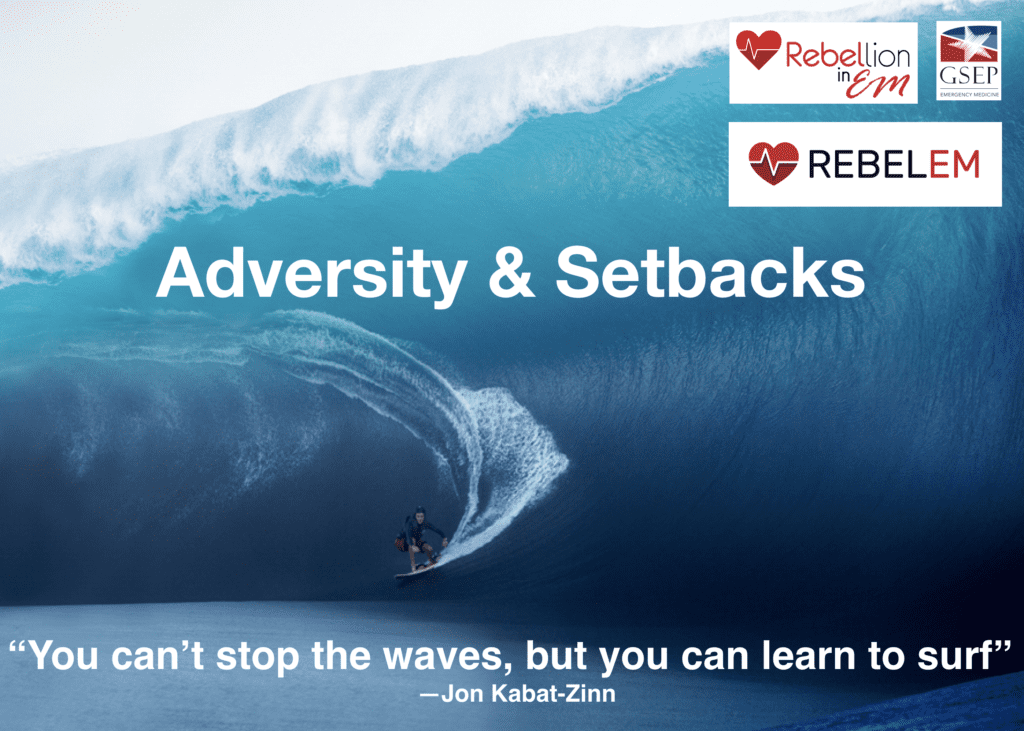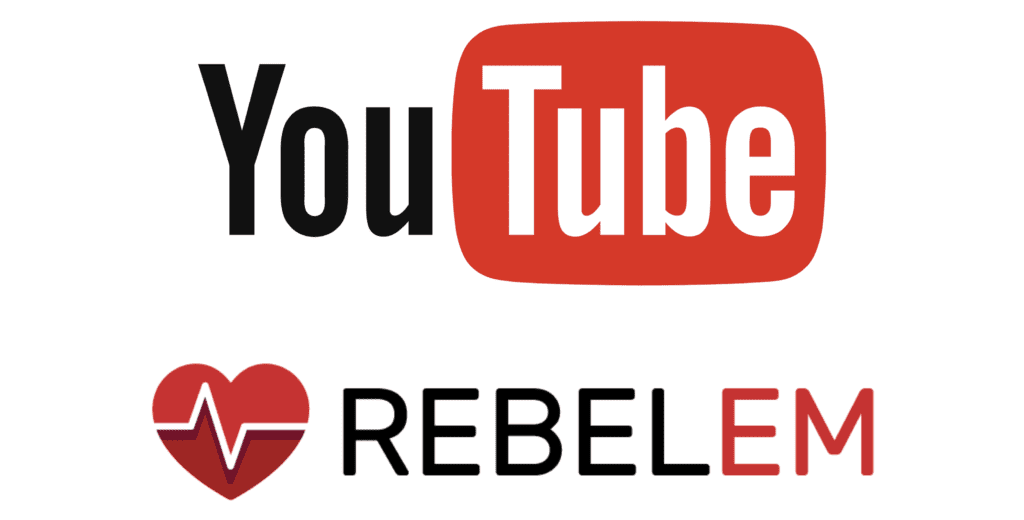
 Life and work can serve up its fair share of adversity and setbacks that we have to contend with. In medicine we are often tasked to perform under time pressures to do complex procedures, deal with human suffering, and make decisions where life/death hang in the balance of our actions or inactions. Adversity has the power to create newfound strength, possibilities, and understanding if we can navigate through them effectively. Conversely, adversity can also destroy our passion, our self-confidence, and what is possible if we do not navigate through them effectively. In this 20 minute talk from Rebellion in EM 2019, Jason Brooks talks about how adversity in and of itself does not lead to value, but it’s what we do with these adverse experiences that matter the most.
Life and work can serve up its fair share of adversity and setbacks that we have to contend with. In medicine we are often tasked to perform under time pressures to do complex procedures, deal with human suffering, and make decisions where life/death hang in the balance of our actions or inactions. Adversity has the power to create newfound strength, possibilities, and understanding if we can navigate through them effectively. Conversely, adversity can also destroy our passion, our self-confidence, and what is possible if we do not navigate through them effectively. In this 20 minute talk from Rebellion in EM 2019, Jason Brooks talks about how adversity in and of itself does not lead to value, but it’s what we do with these adverse experiences that matter the most.
Rebellion in EM 2019: Adversity and Setbacks via Jason Brooks, PhD
[embedyt] https://www.youtube.com/watch?v=jUjT4HFoWpw[/embedyt]
Also Be Sure to Checkout our YouTube Channel

Background:
- Setbacks, failures, and mistakes are all part of learning to become a competent medical professional
- However, the emotional weight of these experiences can pose difficulties to health and performance if left unprocessed
- Fear of failure is a real challenge for professionals in medicine
Critical Point #1: Adversity is part of the gig and can take a toll
- No amount of training or experience can immunize a person from setbacks and failure.
- Learning to navigate through those experiences more effectively, is crucial for sustainable health and performance
- Adversity is a tremendous teacher and catalyst for growth
Critical Point #2: We can be better prepared to respond to these events
- Mindset is everything. Having a process, and a perspective on tough times is key.
- Utilizing the “sim center” between our ears to identify, rehearse, and reinforce a narrative that facilitates readiness can make a big difference
- Having a process to reflect, and draw lessons from setbacks is how we honor those experiences
Critical Point #3: We can be better, collectively, supporting one another through those events
- Research shows how the quality of support we receive from peers and colleagues in the midst of a challenging event can help a person regain poise and focus
- Left unsupported, a person is prone to emotional disturbances, dips in motivation, and diminished job satisfaction
Guest Post By:

Jason Brooks, PhD
Performance Mindset Coach
Lecturer, Department of Emergency Medicine
University of Manitoba
Twitter: @phenomenaldocs
References
- Luu, S., et al. Waking up the next morning: surgeons’ emotional reactions to adverse events. Med Educ 2012. PMID: 23171260
- Lauria, M., et al. Psychological skills to improve emergency care providers’ performance under stress. Ann Emerg Med 2017. PMID: 28460863
- Martin-Krumm, C.P., et al. Explanatory style and resilience after sports failure. Personality and individual differences. 35 (2003): 1685-1695. [Link is HERE]
- McMains, K.C., et al. Perception of shame in otolaryngology head and neck surgery training. Otolaryngol Head Neck Surg 2015. PMID: 26243025
- van der Kolk, B.A. The Body Keeps the Score: Brain, Mind, and Body in Healing of Trauma. 2015. [Link is HERE]
- Porges, S.W. The Polyvagal Theory: Neurophysiological Foundations of Emotion, Attachment, Communication, Self-Regulation. J Can Acad Child Adolesc Psychiatry 2012. PMCID: PMC3490536
Post Peer Reviewed By: Salim R. Rezaie, MD (Twitter: @srrezaie)
The post Rebellion in EM 2019: Navigating Through Adversity and Setbacks in Medicine appeared first on REBEL EM - Emergency Medicine Blog.
